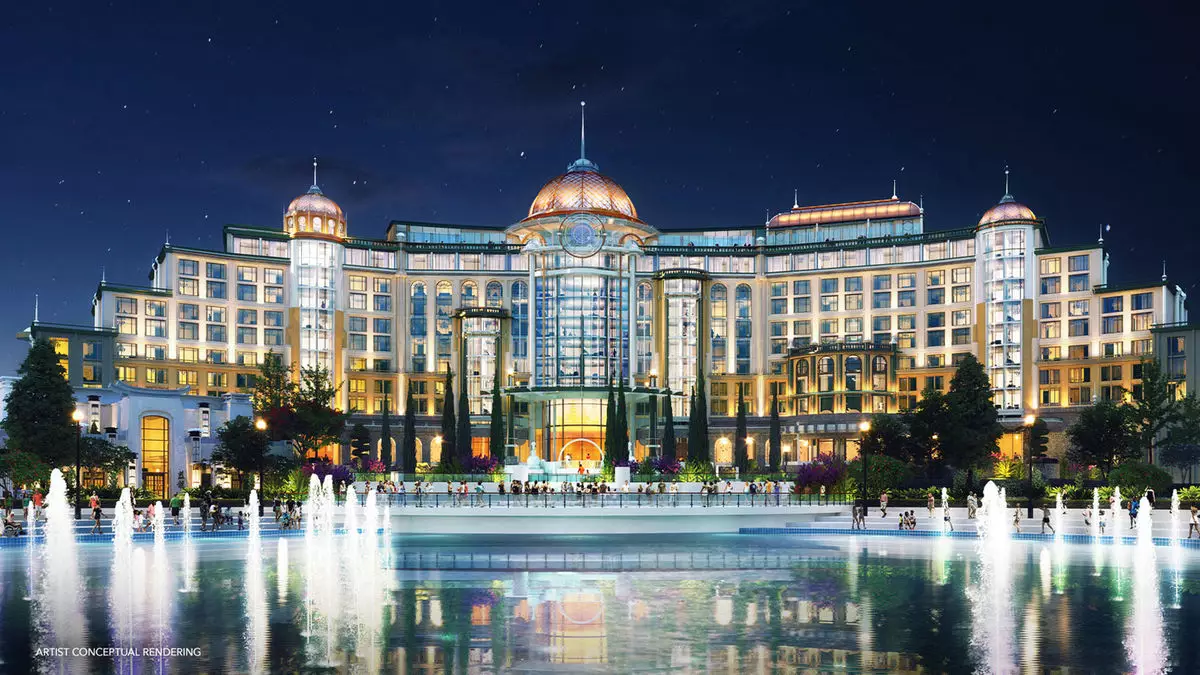Orlando, once primarily known as the playground of theme parks and attractions, is experiencing a transformation in its tourism narrative. The city is witnessing a notable increase in international visitor numbers, spurred by a strategic emphasis on promoting attractions beyond its famous parks. Despite these positive trends, recent hotel occupancy data suggests a return to pre-pandemic levels, indicating that the tourism landscape is in a state of flux.
According to Visit Orlando, the city’s primary tourism marketing organization, hotel occupancy rates have decreased by 2.4% year-to-date through August 2023 when compared to the same period in the previous year. Similarly, demand has also diminished slightly by 0.9%. Although average daily rates remained relatively stable, peaking only a modest 0.1%, the decline in revenue per available room (RevPAR) signals a cautious shift towards normalized travel behavior. In the broader context of domestic travel, Orlando’s experience reflects the nationwide trend of slowed growth in leisure travel as the pandemic-induced surge in travel begins to temper.
Despite the decline in domestic travel demand, Orlando’s international tourism sector has shown remarkable resilience. Recent figures indicate a spike, with international visitors increasing to 6.1 million in 2023, marking a robust 25% growth. Visit Orlando CEO, Casandra Matej, pointed out that while domestic visitor numbers have softened, the influx of international travelers has provided a much-needed boost. This dichotomy highlights the increasing attractiveness of Orlando as a global destination, drawing individuals from diverse backgrounds eager to explore its offerings.
Moreover, Maria Henson, the senior director of market research at Visit Orlando, remains cautiously optimistic about the growth outlook for 2024, predicting a modest increase in overall visitation of between 1% to 2%. The city’s tourism calendar, particularly the fourth quarter, is anticipated to benefit from various seasonal events, including Halloween festivities and holiday celebrations. These traditionally popular events are seen as pivotal in driving visitation and boosting overall occupancy rates.
A significant factor in Orlando’s evolving tourism landscape is the impending unveiling of new attractions, notably the highly anticipated Epic Universe theme park. Set to open in 2025, this park promises to usher in more than 50 interactive experiences, along with upscale dining and shopping venues, not to mention the Universal Helios Grand Hotel. This expansion has incited excitement and speculation within the community, as it is expected to invigorate the local economy and attract more visitors.
Meanwhile, many locals and experts, including travel advisors like Katie Coleman, observe a current dip in demand for Universal Studios. This trend, coupled with the excitement surrounding the upcoming park, may lead potential visitors to hold off on their plans until after its debut. Despite these short-term shifts, Henson from Visit Orlando emphasizes that historical data suggests such anticipation does not often correlate with long-term decreases in visitation.
Concurrently, Orlando is looking to diversify its appeal through a concerted effort to showcase its rich tapestry of cultural and ecological offerings. Visit Orlando seeks to shed light on lesser-known activities such as kayaking in local springs or encounters with wildlife like manatees. Matej emphasizes that the city’s lush natural environment is an attractive selling point that often goes unnoticed.
Moreover, the local arts scene is burgeoning, with high-caliber productions at the Dr. Phillips Center for the Performing Arts and family-friendly experiences like the Blue Man Group at Icon Park. As families seek to balance their itineraries, many are willing to explore activities beyond the confines of theme parks. This shift is leading to an increase in interest in local experiences; travel advisors are noting that families increasingly gravitate towards vacation rentals and alternative recreational options, suggesting sports events or visits to spaces like the Kennedy Space Center as viable substitutes.
The ongoing evolution of Orlando’s tourism sector signifies a community that is slowly maturing and expanding its footprint as a tourist destination. The Central Florida Hotel & Lodging Association’s CEO, Robert Agrusa, notes that the city is still relatively young in the grand scheme of things, with a history of just 60 to 70 years. As tourism offerings continue to diversify, exploring both natural and cultural avenues will likely enhance Orlando’s desirability among travelers. With a strategic focus on expanding its appeal and leveraging new attractions, Orlando is poised to attract a broader spectrum of visitors in the years to come, even amid an ever-changing travel landscape.

